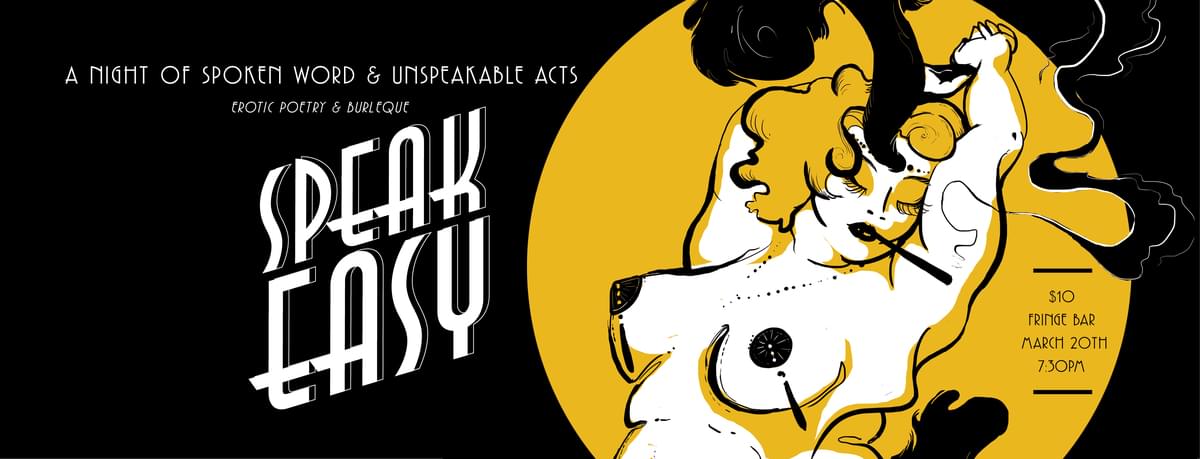Exclusive Inclusivity

A friend of mine recently invited me to an Asian & Pacific Islanders Open Mic, hosted by Luya Poetry in Chicago. The event billed itself as “…a welcoming space for poets of color, with an emphasis on Asian, South Asian, Middle Eastern, and Pacific Islanders to express themselves, [and] share their stories…“. The open mic was part of a larger series of events in the National Poetry Slam. Both my friend and I were expecting a variety of poems about life and love, that happened to be told by Asian/Pacific people. Instead, the majority of the works focused around simply being Asian, racism, cultural assimilation, and personal stories of trauma.
I knew this type of show was likely, but I was still hoping for something more diverse. I don’t want to diminish the personal stories and experiences of all the poets who went up on the open mic. As writers and poets, telling our stories can be a way to bring others into our world and perspective. I just wish that every story didn’t have to start and end with a theme surrounding race; something that not all minorities hold as an integral part of our identities.
In the musical Avenue Q, the character of Kate Monster has a dream of opening up a school just for monsters. The protagonist Princeton asks if Kate is related to another monster, at which Kate takes great offense and accuses Princeton of being racist. Princeton asserts that the concept of a school exclusively for monsters, that would exclude human puppets like himself, was itself racist. This leads both the puppet and human characters to break into the song, Everyone’s a Little Bit Racist.
The purpose of an open-mic or theater production, limited to a particular group by race, gender, sexual orientation or other attribute, is often stated as providing a safe space for performers. This intention tends to create an environment where the production itself is focused on aspects of being a part of that particular group, and their interaction with the rest of society. Similar to the Christian Music genre, pieces tend to be opinionated and related directly to that group. Although there are occasionally works about other common and tangentially related topics such as romance, fiction or comedy, they are often the minority of the works presented.
When I was in University, I and two other male friends attended a production of The Vagina Monologues. Although there are moments that could be uncomfortable for males, amidst an audience of women cheering for female empowerment and applauding a play named after their genitalia, I did find the entire production enjoyable. However in retrospect, one particular monologue did bother me, and has also caused much controversy around the play itself.
In the monologue The Little Coochie Snorcher That Could, a character describes a childhood with painful sexual trauma. Her character, talking as an adult, tells the story of an adult woman giving her alcohol as a child and engaging with her sexually to teach her about her body. She regards what would be commonly viewed predatory behavior by an adult, as a positive healing experience. We sat in that theater and listened to the audience cheer and applaud a story that was essentially about statutory rape.
Normally people wouldn’t give acclaim to a story about child abuse, nor do I think the audience would normally condone the actions of the women in the story. They cheered because of the context in which the story was presented. When an entire event is focused on a particular marginalized group, it tends to create more leeway in what would normally be considered socially acceptable. Ideas that may be intended as an opposition to exclusivity or misogyny may actually become racist or sexist within their own right. The entire concept of a safe space can quickly turn into an echo chamber.
In 1954, The Supreme Court of the United States ruled in the landmark case of Brown vs. The Board of Education, leading to the eventual eradication of state sponsored segregation in public schools. People of color were not satisfied with separate but equal access to education, or to buses and public facilities. I can understand why some communities self-segregate, in order to preserve their language and cultures and pass on family traditions to their children. However, as with Kate Monster’s exclusive school for monsters, complete separation by a minority group into a safe space could create its own tensions, and keep people from outside of that group from understanding, learning from and supporting other cultures.

I’ve only produced one stage variety show myself, and to be fair it did have a theme. It was an erotic poetry and burlesque show, based off a similar exhibition I had experienced several years previously at a book signing. The theme was not based around a particular group of people, but simply a concept. The performers who participated really ran with the idea, creating all varieties of stories, both real and fictional, mixed with dance, music, sticky notes, balloons and even singing.
I personally tend to avoid attending theatrical productions or variety shows whose theme is a particular people or group. I can understand what they are attempting to achieve, and I can acknowledge that these shows often star many talented performers. Still, I can’t help but feel that the emphasis on a marginalized groups often creates shows that feel very exclusive in their attempt at inclusivity. They tend to end up like Christian Rock Music: opinionated, flat, one dimensional and only appealing to people already within their fan base.
